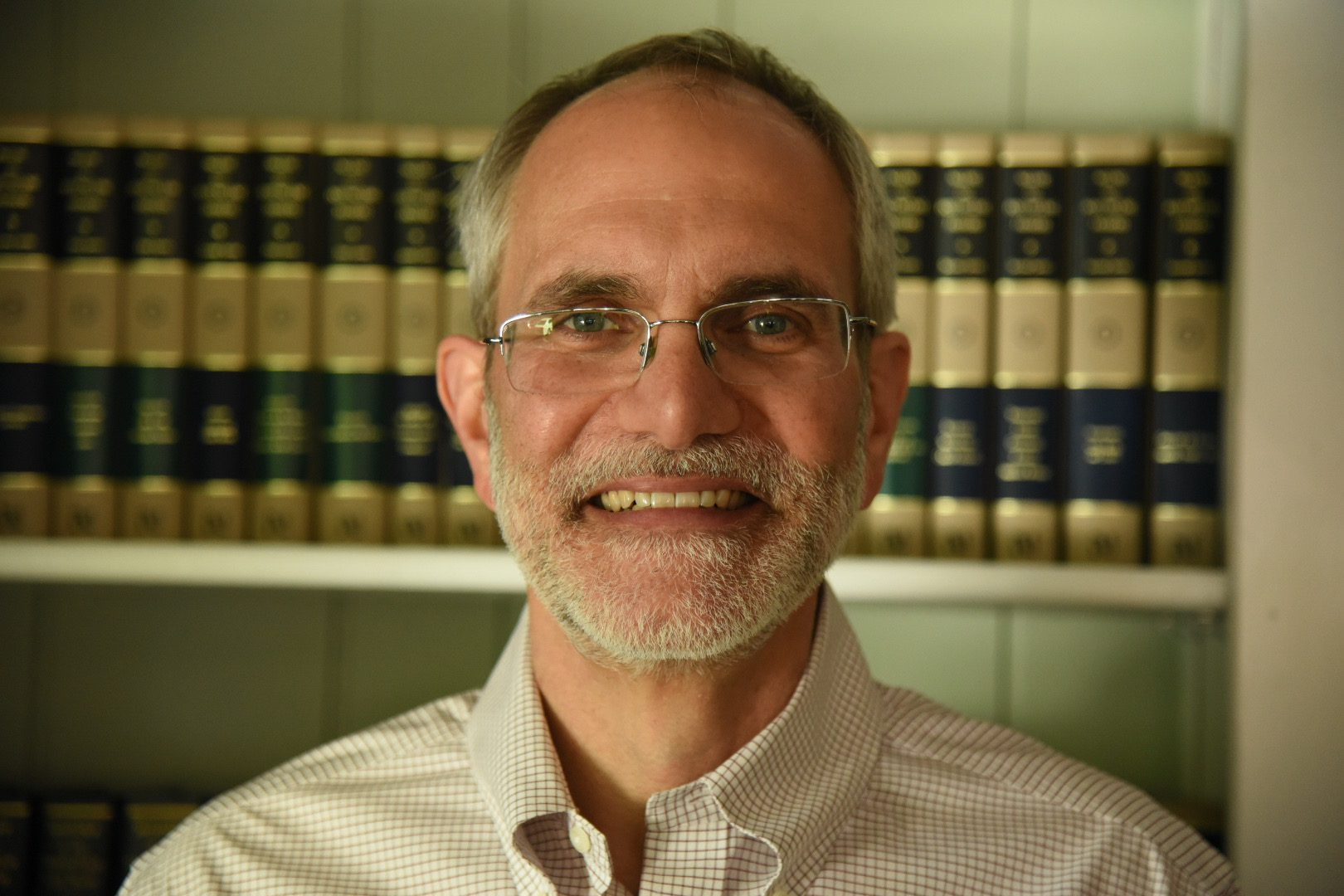Over the last thirty years, apologetics has taken a more prominent role in the life of lay Catholics. There are several reasons for this. First, Catholics have been blessed by a string of well-formed Protestant converts. Convert-scholars like Thomas Howard, Peter Kreeft, Scott Hahn, and John Bergsma have enriched the Catholic faithful with well-reasoned, beautiful accounts of their motives for being Catholic. This apologetic literature is now a staple on Catholic bookshelves.
Second, the rapid growth of Catholic media has contributed to the widespread dissemination of apologetics beyond the world of print. The Eternal Word Television Network, for example, available in more than 400 million homes around the world, has hosted all the aforementioned scholars and countless more besides.
Finally, the invention of the smartphone and the growth of the internet have fundamentally altered the nature of public discourse, elevating polemics and debate across the entire culture. [1] Furthermore, as Philip Jenkins has pointed out, the Catholic Church receives a disproportionate share of this polemical onslaught.[2] Although Apologetics does not have to be combative, Catholics feel a natural desire to defend what they love against attack.
I am an active and enthusiastic participant in this project. I am a professional apologist for the Catholic faith, hosting a daily radio show for non-Catholics where I pose the question, “What’s stopping you from becoming a Catholic.”[3] My goal is to answer objections and to help others perceive Catholicism as both reasonable and beautiful. I strive to follow St. Peter’s admonition, “Always be prepared to give an answer to everyone who asks you to give the reason for the hope that you have. But do this with gentleness and respect, keeping a clear conscience.” (1 Peter 3:15-16)
The discipline of apologetics has been an incalculable boon to many people. This literature has introduced many people (including many cradle Catholics) to the beauty of the Catholic faith. (I know I would not have become Catholic without it.) Apologetics can also help Catholics feel more confident in their faith and enhance their practice as they begin to grasp the reasons for the many traditions and rituals they may previously have taken for granted.
But although apologetics is an important tool, it can be misused. If one elevates apologetics beyond its appropriate sphere, it can become positively dangerous. It is crucially important to remember the apostle’s warning, “if I understand all mysteries and all knowledge . . . but do not have love, I am nothing.” (1 Corinthians 13:2)
As a professional member of the apologetics “industry,” I offer here a few words of caution about the place of apologetics in contemporary Christian life.
The Danger of Theological Pride
“What good does it do to speak learnedly about the Trinity if, lacking humility, you displease the Trinity? Indeed, it is not learning that makes a man holy and just, but a virtuous life makes him pleasing to God. I would rather feel contrition than know how to define it.”
–Thomas A ‘Kempis, The Imitation of Christ.[4]
The first, and most obvious danger of apologetics, is the danger of pride. Effective apologetics requires a vast store of knowledge, mental acuity, and rhetorical skill. For reasons having nothing to do with holiness, this is a game where some naturally excel. As a public activity, it is also a game that invites praise or blame. Catholics naturally enjoy hearing their faith defended, and they laud those who do so well.
St. Francis of Assisi was particularly alert to this danger. He was famously suspect of allowing formal theological instruction into his order and only relented in the face of St. Anthony of Padua’s obvious humility. Even so, he cautioned Anthony to teach in a way that would not “destroy the spirit of holy prayer and devotedness, contained in the rule.”[5]
The Danger of Dehumanizing One’s Interlocutor
For our struggle is not against enemies of blood and flesh, but against the rulers, against the authorities, against the cosmic powers of this present darkness, against the spiritual forces of evil in the heavenly places. Ephesians 6:12
In the 1982 film Conan the Barbarian, the lead character (played by Arnold Schwarzenegger) is asked what he thinks is best in life. His response has become a popular internet meme: “To Crush your enemies, to see them driven before you, and to hear the lamentations of their women.” This desire to vanquish one’s enemies is quite familiar, even biblical. (See Psalm 3:7; 58:6) However, it is entirely inappropriate for the Christian.
Jesus’ own disciples were subject to this temptation. When the Samaritans refused them hospitality, James and John asked Jesus “Lord, do you want us to command fire to come down from heaven and consume them?” (Luke 9:54) The Lord rebuked them for this attitude.
Apologetics does not have to be polemical or combative. For example, when Bishop Robert Barron offers commentary on the latest Marvel comic film, he makes the faith accessible and relevant to people who might otherwise be hostile. But apologetics often is combative, especially when conducted in the context of a formal debate. In these settings, the apologist is cheered on by the home team that wants their man to “win.” This can quickly turn into a desire to “crush one’s enemy, seeing him driven before you.”
This desire to “win at all costs” is harmful at several levels. First, there is the obvious dehumanization of one’s interlocutor, a spirit far from Christian charity. This performative contradiction often alienates the very people one is trying to “save.” More than once, I have “won” a debate only to learn that my imperious attitude undermined every point I was trying to make.
Ironically, the “win-at-all-costs” attitude can also produce bad apologetics and shoddy thinking. The apologist who is determined to “win” is more concerned with debating points than honestly confronting the difficulties that trouble the skeptic. This can lead to straw man arguments, and other fallacies of irrelevance, as the apologist gloriously defeats every windmill in sight. He may leave his opponent tongue-tied while failing to address his real existential needs.
The virtuous apologist, by contrast, tries empathetically to see the question from the other man’s point of view. He confronts the strongest objection to the faith, rather than the ones he finds easiest to beat. He may even strengthen his opponent’s argument, “steel manning” the objection rather than responding to a “straw man.” This approach is not only intellectually honest but demonstrates the empathy integral to Christian charity.
St. Thomas Aquinas was a master of this kind of charitable apologetics. In reading the Summa Theologica, I am struck by how often St. Thomas integrates his opponents’ viewpoints into his own. He does not simply reject them outright but looks for the truth in the other point of view. St. Thomas’s theological method, called dialectic, was based on this philosophy. Rather than simply thundering truth from the heights, as someone like St. Bernard of Clairvaux might have done, St. Thomas took an exploratory and inductive approach. Often, he was looking for the answer to a problem, and not simply declaring the answer.
The emotional need to vanquish one’s opponent also risks misconstruing the nature of faith. That is, it can proceed from an erroneous doctrine of faith. The First Vatican Council taught that no one can come to faith without the illumination of the Holy Spirit and, furthermore, that reason cannot demonstrate all the articles of faith. At best, the apologist can correct misunderstandings and demonstrate the beauty and consistency of the faith. The one thing he cannot do is compel an act of faith through rhetorical skill.
Real faith cannot be compelled through analytical reasoning, but it is possible to manipulate with skill and cunning. This is what the Church calls proselytizing, which frustrates rather than facilitates authentic faith. Real faith is a reasoned, unconstrained, gift of self, analogous to marriage. Psychological manipulation, by contrast, shuts down critical reasoning. Since conscience depends on reasoned moral judgment, proselytism can destroy the conscience. This kind of “faith” will ultimately crack under pressure, leading to skepticism. Malicious apologetics, therefore, leads either to bigotry or unbelief.
The Danger of a Gnostic Faith
Ancient Gnosticism was the original conspiracy theory. It offered a simple explanation of what’s wrong with the world and it proposed a simple, but attractive solution. Just grant one small premise (the world is an evil illusion), and suddenly you enter the ranks of the elect, the ones that “really get what’s going on.”
Conspiracy theories and radical ideologies all have this appeal. Like the narrator in Pete Townsend’s song, the conspiracy theorist “won’t get fooled again.” He sees the truth, and he pits his truth against the mainstream. He is eager for others to join him in his point of view, and these “true believers” support one another in their delusion. The more they embrace their “privileged insight,” the more they disdain or condescend towards all the poor saps on the outside.
This may be the greatest danger of apologetics or any kind of theological study. The emotional need to produce the perfect theological system can be motivated by a deep insecurity and intolerance for uncertainty. But the Catholic faith teaches that we are finite, contingent beings whose intellectual knowledge of God is, at best, constructed through analogy. Uncertainty is baked into our cognitive machinery. The proper response to emotional and intellectual insecurity is a life of virtue, especially the virtue of prudence. When apologetics feeds a gnostic theology, it can become a harmful substitute for the development of this virtue.
There is, to be sure, a legitimately gnostic element to Christianity, in the sense that the faith offers knowledge of God we would not otherwise have achieved. St. Paul, for example, wrote about “the mystery hidden in God from ages past but now made known to the apostles and prophets.” (Ephesians 3:1-9) How would we ever have known the Trinity but by revelation? But there is a key difference between what St. Clement called “the Christian gnosis” and the ancient, heretical variety.
In the Catholic faith, the saving knowledge of Christ is not simply knowledge about Christ. It is a participation in Christ’s own act of knowing. It is not simply the definition of the Trinity, but the indwelling of the Three Divine Persons. It is coming to see the world through Christ’s eyes, to view the stranger, the alien, the outcast, and the poor with the same eyes of compassion as Christ. Pope Francis explains:
Faith does not merely gaze at Jesus, but sees things as Jesus himself sees them, with his own eyes: it is a participation in his way of seeing.[6]
Apologetics can be an important first step in introducing people to Jesus, but to enter deeply into Christ’s point of view requires something more. Only the Catholic way of life can do that. For St. Paul, it was not finally argument but suffering that enabled him to “present everyone perfect in Christ.” (Colossians 1:24-29) The Church, working together, “builds up in love.” (Ephesians 4:16)
The sacraments provide a unity-in-charity, requiring the faithful to put aside sectarian disputes. (1 Corinthians 1:12; 10:17)
When apologetics becomes the be-all-and-end-all, we forget that the goal of the Catholic faith is not to be right but to be righteous. (1 Corinthians 6:7)
When apologetics fails:
There are times in Catholic life when arguments for the faith, no matter how cogent, simply ring hollow. In her Story of a Soul, St. Thérèse de Lisieux wrote that God had allowed her soul to be overcome with darkness. The thought of heaven, rather than bringing comfort, only brought her conflict and torture. St. Mother Theresa of Calcutta experienced much the same thing, writing to her confessor that either there was no God, or that he had rejected her. These sentiments are not uncommon. Even the Psalmist complains, “Why, Lord, do you reject me and hide your face from me?” (Psalm 88: 14)
There is an entire book of the Bible committed to this problem, and to the impotence of apologetics to resolve it. Amid extraordinary sorrow, righteous Job confronted God’s apparent injustice. Instead of offering love and friendship, his companions offered apologetics. They attempted to explain the logic of God’s justice. But God’s verdict on their attempts was clear, “I am angry with you and your two friends, because you have not spoken the truth about me.” (Job 42:7)
St. John Henry Newman, one of our greatest apologists, wrote his Grammar of Assent to explain how people come to the beliefs they hold. His central theme was that people must be properly disposed even to perceive an argument as compelling. Their cultural and emotional background strongly condition how they process information. From a pastoral point of view, therefore, sometimes the worst thing we can do is to offer what seems to us to be a solid argument. Especially in the face of suffering, compassion is often a far better response.
Conclusion:
St. Augustine was one of the greatest Catholic apologists ever to live, but he understood the limits of intellectual activity. After years of pursuing intellectual certainty, was as far from self-mastery as ever. What finally convinced him of Catholic truth was not brilliant apologetics, but the charitable example of unlearned, desert monks. How could these men, without schooling, live such virtuous and powerful lives? This is the question that finally compelled him to look to Christ.
Augustine was a masterful apologist and masterful theologian. He was passionately committed to the truth. In his book On Christian Doctrine, however, Augustine wrote that we should regard all the elements of the faith (including apologetics) like a road or a chariot, simply a means that carries us to an end and that end is charity.
_________________________________________________________________________
[1] https://www.theatlantic.com/magazine/archive/2022/05/social-media-democracy-trust-babel/629369/
[2] Philip Jenkins, The New Anti-Catholicism: The Last Acceptable Prejudice (Oxford: OUP, 2003)
[3] “Called to Communion,” on the EWTN Global Catholic Radio Network.
[4] Bruce Publishing Translation, 1940.
[5] Thompson, Augustine, Francis of Assisi: The Life (Ithaca, Cornell University Press, 2013, Kindle Edition, 143
[6] Lumen Fidei, 18.
Image courtesy of Unsplash.




